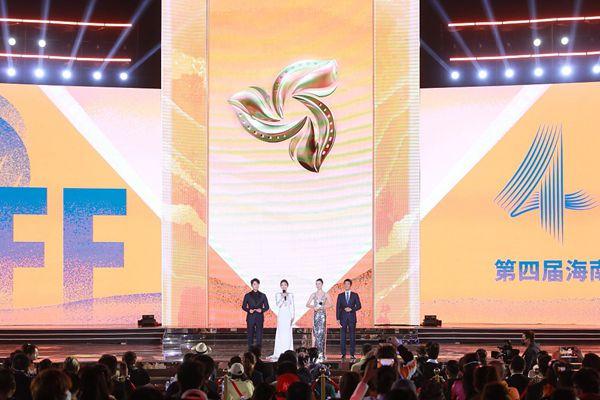Chinese films need to rethink 'going global'
- By Zhang Rui
 0 Comment(s)
0 Comment(s) Print
Print E-mail China.org.cn, December 27, 2022
E-mail China.org.cn, December 27, 2022
At a forum held during the fourth Hainan Island International Film Festival (HIIFF) on Dec. 20, filmmakers and executives discussed strategies for promoting Chinese films and culture on a global scale. While recognizing the importance of international markets, they emphasized the need to focus on the domestic market as a priority in order to ensure the survival of the industry.

Li Ning, senior vice president of Chinese entertainment group New Classics Media, said he was more concerned with attracting Chinese audiences back into local theaters rather than "going global," as the Chinese film market continues to suffer from a COVID-19 resurgence and a lack of quality films.
"Chinese films need a China vision more than an international vision. Only when we find ways to attract Chinese audiences back can we revive the whole film industry. Then we can talk about diversity and going global," Li said.
As the new year approaches, China's box office gross for the year has fallen well below last year's total of 47 billion yuan ($6.7 billion), with a current total of less than 30 billion yuan. Plus, the pandemic's impact is lingering, budgets are stretched, and local films' revenue primarily relies on the box office, so recouping the cost is a big challenge. All these factors exert tremendous pressure on film practitioners.
Producer Zhang Yu noted it was difficult to make a movie in 2022, referring to the challenges mentioned above. He called for a system to help innovative film projects get financing and a more conducive environment for filmmakers to dig out interesting stories and topics.
"Our priority is to survive, no matter whether it is the creative end, production end, distribution end, or the theatrical screening end," said producer and famed screenwriter Chang Chia-lu. After three years, the pandemic has changed the world, and "now is the era of great changes, in a stage when values or value systems are smashed and reorganized. During the past two or three decades we have studied making films like Americans. Now we have to stop to think about if there's a more suitable storytelling method for the Chinese audience."

This echoed Yu Dong, producer and chairman of Bona Film Group, who said earlier in another forum held during the film festival that he felt American blockbusters like the recent "Avatar: The Way of Water," which did worse than expected in China, are more about sci-fi heroes and comic book superheroes and do not fit Chinese audiences' moviegoing interests. Instead, he said Chinese audiences love Chinese stories more, especially those based on Chinese realities and culture .
Director Zhang Ming observed that China's film industry is globally isolated due to the pandemic and its influence is declining. "Now it's time for us to start over. In the domestic film ecology, it is the small indie film companies that really want to maintain their original creative spirit and the common values of humanity, and promote Chinese films to the world. So, we must lay the foundation so various creatives can grow and thrive."
Zhang Yisong, producer and general manager of Beijing TV Art Center, pointed out that an "international vision" should be an approach more than a goal. "We should use an international vision to see what the world is becoming now … to make better films instead of just selling them overseas. We should also know which movies are suitable for the international market and which ones can get help from global markets. We should build a solid foundation for the Chinese film industry before we realize our ambition to be a powerful country in filmmaking by 2035."
The one-week Hainan Island International Film Festival, jointly organized by China Media Group and the Hainan provincial government, closed on Saturday in Sanya, a resort city in south China's Hainan province. About 100 films were screened during the festival, including the opening film "Post Truth" and the closing film "Lost in the Stars," while forums, a film market, master classes and film pitches were also held.
This year's film festival amassed a total of 3,761 films from 116 countries and regions for the Golden Coconut Awards, with Laura Citarella's "Trenque Lauquen" (Germany/Argentina) winning the best film award.
The list of winners is below:
(The winner list image)







Go to Forum >>0 Comment(s)